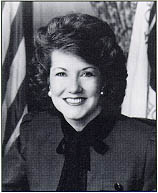September 30
| 1912 | The American Road Congress gets underway at the Greek Temple on the Million Dollar Pier in Atlantic City, NJ (running through October 6). Director Logan Page, opening the congress with an address on the "Road Situation in the United States," says, "In their effect upon human welfare, in the difficult and complex problems lying within the province of almost every department of human endeavor, road improvement may well be said to touch the progress of civilization at every point." Page also introduces Governor Woodrow Wilson, who explains why he supports good roads. "I tell you very frankly that my interest in good roads is not merely an interest in the pleasure of riding in automobiles, it is not merely an interest in the very much more important matter of affording the farmers of this country and the residents in villages the means of ready access to such neighboring markets as they need for the economic benefit, but it is also the interest in weaving as complicated and elaborate a net of neighborhood and State and national opinions together as it is possible to weave.""In their effect upon human welfare, in the difficult and complex problems lying within the province of almost every department of human endeavor, road improvement may well be said to touch the progress of civilization at every point." | |
| 1930 | Aboard the SS George Washington, British delegates to the International Road Congress in Washington, DC, send a letter to readers of England's Roads and Road Construction indicating that "we are making good progress over a calm and sunny sea." They are particularly enthusiastic about the daily morning lectures, illustrated by films, by BPR's T. Warren Allen on "The Highways of the U.S.A." The lectures cover such topics as finance and road types, surface treatment of gravel and other roads, roads mixed bituminous construction, cement concrete roads, and brick roads. The delegates' letter states that, "It was with some misgiving that we looked forward to the series of lectures on the subject of roadmaking, but Mr. Allen succeeded in making these so interesting that, together with the films, they provided quite an enjoyable interlude in the life aboard; not only were they attended by Congress members but by the ladies and non-Congress passengers." (See October 11, 1930.) | |
| 1985 | Secretary of Transportation Elizabeth Dole approves a request from Governor Mario Cuomo and Mayor Edward Koch to withdraw the 4.2-mile Westway (I-476) from the Interstate System in New York City. On September 12, the U.S. Court of Appeals for the Second District had upheld Judge Thomas Griesa's August 7 decision voiding the Corps of Engineers' landfill permit, but revoked his permanent injunction against the nearly $2 billion project. However, faced with a statutory withdrawal deadline of September 30, New York State and New York City officials decided to end the project. After the withdrawal request was submitted by Governor Cuomo and Mayor Koch, an editorial in The New York Times asked, "Why did a project offering so much to so many finally fall as flat as the old elevated West Side Highway it was to replace?" The answer, the editorial concluded, is "horror of the automobile."
| |
| 1994 | Under the Federal Workforce Restructuring Act of 1994, which was signed on March 30 by President Clinton, 193 FHWA employees retire after accepting buyouts of up to $25,000. Retirees include Executive Director E. Dean Carlson, three Regional Administrators, seven Division Administrators, and other employees in all grades and a variety of assignments. The retirees averaged 33 years of service and collectively provided 6,317 years of service to FHWA. |

